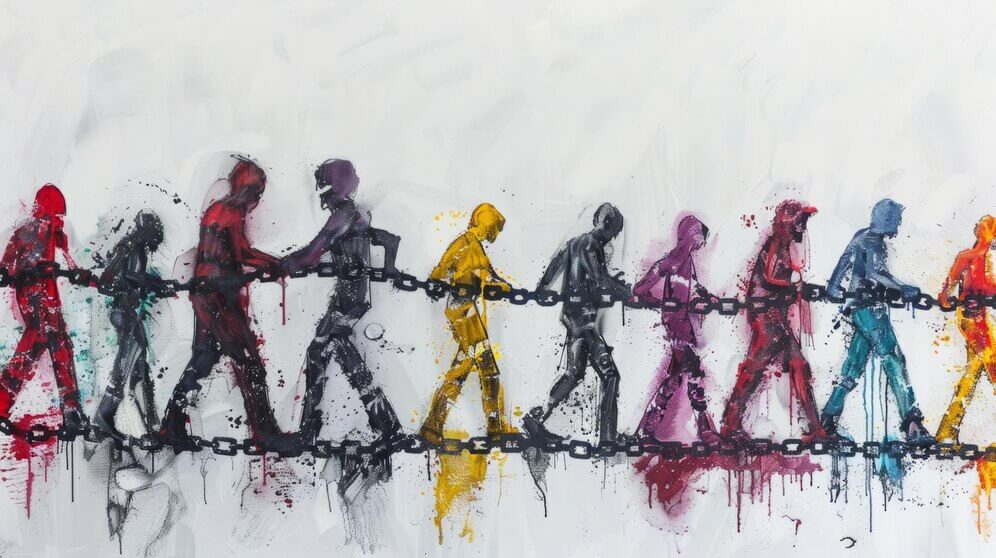Extreme Nationalism in Opposition to The CHT Regulation 1900
Thain Shewe Kyaw | 01 August 2024
A hearing on the review of the Chittagong Hill Tracts (CHT) Regulation, 1900 is ticking its final hour. The CHT Regulation, 1900, also known as the CHT Manual 1900, was issued by the then-British rulers to protect the diverse culture and its indigenous inhabitants of CHT from outsiders (specifically Bengali outsiders). At that time, the demographic ratio between indigenous communities and Bengalis in the CHT was 92:8 in percentage.After the independence of Bangladesh, the indigenous communities of CHT were neglected and treated as inferior by the central government and its administration. Numerous examples of such inferior treatment are evident in the parliamentary debates between Manabendra Narayan Larma and other parliamentary members of that era. In 1973, the leader of the nation, in a speech at Rangamati Stadium, stated to the CHT indigenous communities, “You all are being promoted from Upajati (tribes) to Jati(denotes Bengali nation).” So-called intellectual personals interpreted this statement as a reflection of emotion, but it also reflected the negligence towards CHT indigenous communities and a huge lack of knowledge regarding the history of CHT.In 1975, an insurgency period began in CHT, which was supposed to end with the signing of the CHT Peace Accord in 1997, but it didn’t. During the insurgency period, the extreme nationalist approach successfully changed the demography of the CHT by injecting Bengali settlers into the region and developing the Gucchagram project which gave birtha dirty politics in CHT. Even a few years ago, the Khagrachari Hill District Council chairman was attacked by a mob from Gucchagram. The CHT indigenous communities lost faith in the state forces as they directly suffered from the actions of the forces.The CHT Peace Accord, the CHT Regional Council Act, the Hill District Councils Act, and the CHT Land Dispute Settlement Commission Act are all denoted as the only safeguards for the indigenous communities of CHT, with their principles founded in the CHT Manual 1900. In 2003, amendments to the CHT Regulation, 1900, transferred civil and criminal judicial proceedings to judicial officers, specifically Joint District and Sessions Judges and District and Sessions Judges, changes that were positively received by the local people. However, in the same year, the High Court bench labeled the CHT Regulation as a "dead law" in a case involving Rangamati Foods Product Ltd.
This decision was appealed, and on November 22, 2016, the Supreme Court's Appellate Division declared the CHT Regulation to be a valid and effective law. Additionally, in another case involving the Wagga Chhara Tea Estate, the Supreme Court reiterated on December 2, 2014, that the CHT Regulation was still a living and active law.Despite these rulings, two Bengali settlers from Khagrachari filed for a review in 2018. The Attorney General supported this review, advocating for the removal of 37 significant clauses out of 65. On May 9, 2024, the full bench of the Appellate Division of the Supreme Court held a review hearing regarding the CHT Regulation's status as a dead law. The bench, comprising eight judges, including the Chief Justice, is expected to make a final ruling soon. In the earlier period,the conspiracy to change the demography of the CHT and convertthis region into an epicenter of armed conflictsis completely successful and subsequently, it also helps to legitimize the over-presence of the defense forces in CHT. This massive fire of extreme nationalism has been burning in CHT for the last five decades, and now it is threatening to burn down every institution in CHT that provides the least security to the indigenous people.The question behind this hearing, after a review had already been declared earlier, echoes the extreme nationalism that exists (thousands of innocent people suffered from it for several decades), and the purpose of this motive will serve to demolish the beauty of diversity in CHT.
Thain Shewe Kyaw is Executive policy Associate at Centre for Governance Studies
Views in this article are author’s own and do not necessarily reflect CGS policy.
